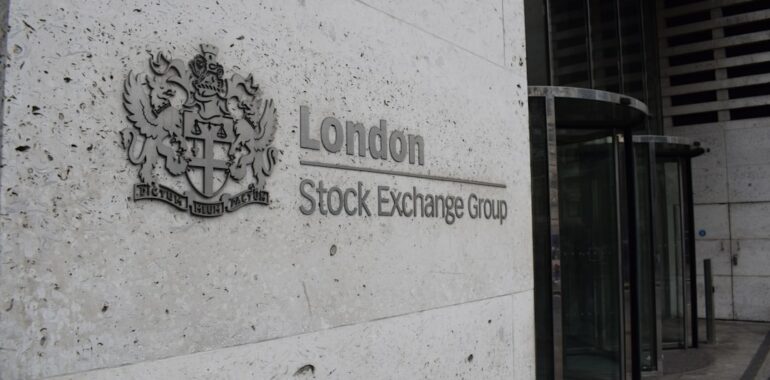Inside the GME Short Squeeze: How WallStreetBets Challenged Hedge Funds

Meta Description: Explore how r/wallstreetbets sparked the GameStop short squeeze, disrupted hedge funds, and reshaped the stock market landscape.
Introduction
In early 2021, the financial world witnessed an unprecedented event that shook traditional Wall Street practices to their core: the GameStop (GME) short squeeze. Spearheaded by the online community r/wallstreetbets, retail investors collectively targeted heavily shorted stocks, leading to dramatic price surges and significant losses for hedge funds. This phenomenon not only highlighted the power of coordinated retail investing but also sparked intense debates about market dynamics, regulation, and the future of trading platforms.
Understanding the Stock Short Squeeze
A stock short squeeze occurs when a heavily shorted stock’s price starts to rise, forcing short sellers to buy back shares to cover their positions, thereby driving the price even higher. Short selling involves borrowing shares and selling them with the expectation that the stock’s price will decline. However, if the price increases instead, short sellers face potentially unlimited losses as they are required to repurchase the shares at higher prices.
How Short Squeezes Unfold
When a stock is shorted extensively, any upward movement in its price can trigger a squeeze. Investors, anticipating the squeeze, may buy shares to gain from the price increase, further exacerbating the situation. This cycle can lead to rapid and significant price escalations, as seen with GameStop.
WallStreetBets and the GameStop Movement
The r/wallstreetbets community on Reddit played a pivotal role in orchestrating the GameStop short squeeze. Comprised mainly of retail investors and trading enthusiasts, the group leveraged social media to consolidate buying efforts for GME, targeting hedge funds that had amassed large short positions in the stock.
The Catalyst: Roaring Kitty
Keith Gill, known online as “Roaring Kitty,” emerged as a central figure in the movement. His detailed analysis and confident stance on GameStop’s potential attracted thousands of followers, galvanizing collective action against institutional short sellers. Gill’s advocacy demonstrated how influential individual investors could disrupt established financial strategies.
The Short Squeeze in Action
In January 2021, GameStop’s stock price skyrocketed from under $20 to nearly $500 within weeks. This meteoric rise was primarily driven by retail investors purchasing shares en masse, creating a classic short squeeze scenario. Hedge funds like Melvin Capital, which had significant short positions in GME, faced enormous losses, some totaling billions of dollars.
Robinhood’s Controversial Role
Amid the frenzy, trading platforms like Robinhood restricted purchases of GME shares, citing the need to meet regulatory capital requirements. This decision sparked outrage among retail investors, who perceived it as a move to protect hedge funds. The controversy highlighted the tensions between retail investors and institutional players, as well as the influence of trading platforms in market dynamics.
Impact on the Financial Landscape
The GameStop short squeeze had far-reaching implications, reshaping perceptions of market power and investor influence.
Winners and Losers
While many retail investors profited from the stock’s rise, others who bought in at peak prices faced significant losses as the stock eventually declined. Hedge funds that failed to cover their short positions incurred substantial financial setbacks, leading to increased scrutiny of their strategies and risk management practices.
Regulatory and Market Changes
The event prompted discussions about market regulations, transparency in short selling, and the role of social media in influencing stock prices. Regulatory bodies began exploring measures to prevent similar occurrences in the future, aiming to balance market fairness and investor protection.
The Rise of Cryptocurrencies and Decentralized Finance
In the aftermath of the GME squeeze, interest in cryptocurrencies and decentralized finance (DeFi) surged. Many retail investors sought alternative investment avenues, viewing digital assets as a way to regain financial autonomy and influence in the market.
DeFi as a Response to Traditional Finance
Decentralized finance platforms offer services without traditional intermediaries, empowering users to lend, borrow, and trade with greater control over their assets. The GameStop saga underscored the desire for more democratized financial systems, where individual investors can exert significant influence without relying solely on institutional frameworks.
Conclusion
The GameStop short squeeze was a landmark event that demonstrated the formidable power of coordinated retail investing. By harnessing the collective strength of online communities like r/wallstreetbets, individual investors challenged entrenched hedge funds, sparking debates about market mechanisms, regulation, and the future of trading platforms. As the financial landscape continues to evolve, the lessons from the GME saga will undoubtedly influence strategies, regulations, and the ongoing dialogue between retail and institutional investors.
Ready to take your investment journey to the next level? Join the community at Superstonk and stay informed on the latest market trends and opportunities.




